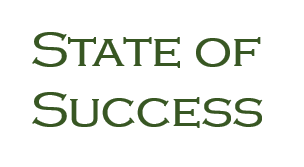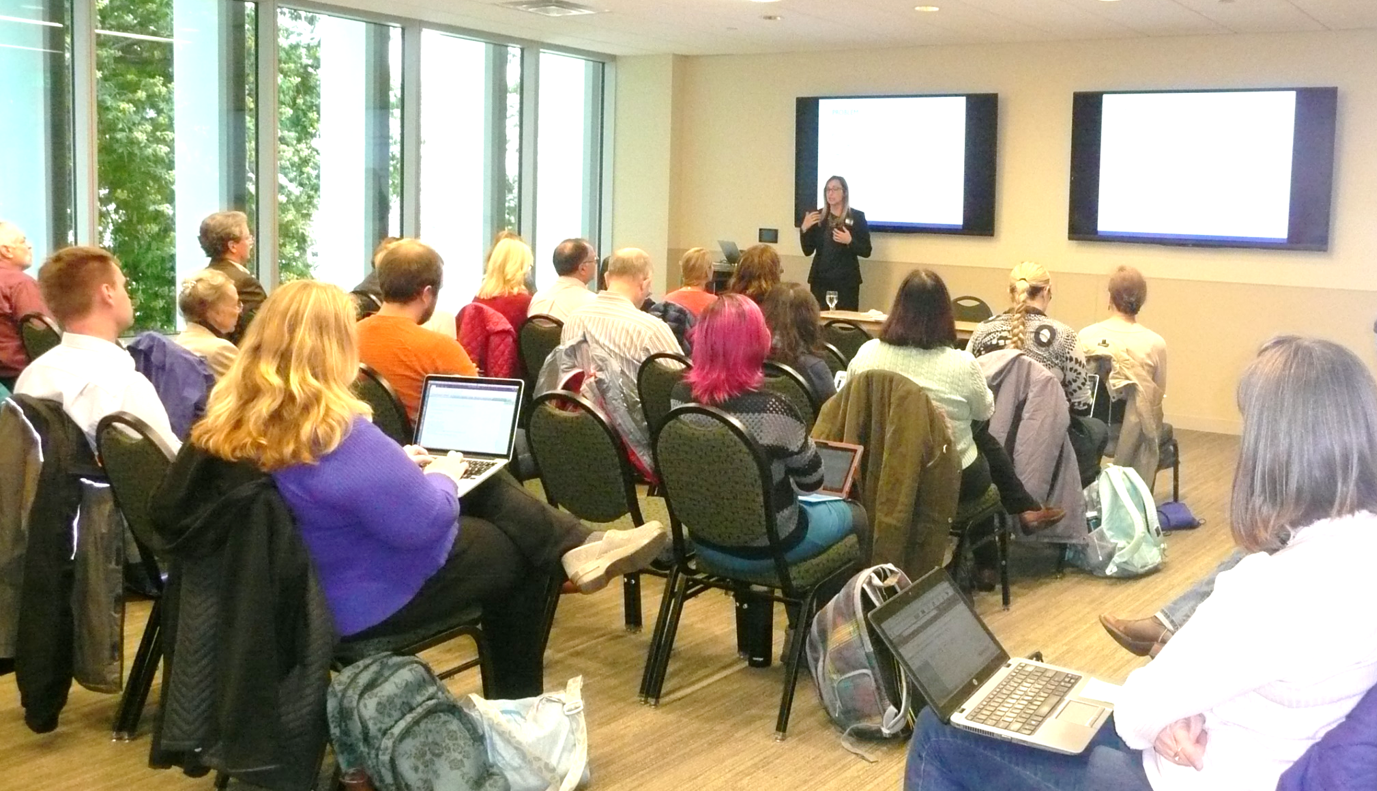TILT ANNUAL REPORT, 2016-17
HOME | Advancing Curricular Excellence | Engaging Students | Supporting Sutdent Success | Promoting Faculty Development
Promoting Faculty Development
This past year was focused on quality rather than quantity of professional development opportunities. This was one way to increase usefulness to our participants and to ensure that the Principles of Community are incorporated into each area of Professional Development.
Professional development’s focus has been on teaching practices such as High Impact Learning Strategies, Active Learning, Critical Thinking Skills, Diversity and Inclusion, as well as going back to the basics of Classroom Management Strategies, Curriculum Development around incorporating Learning Objectives and Educational Goals in the Classroom, Creating a Teaching Philosophy, and Creating Effective Lesson Plans and Syllabi. This includes closer alignment with instructional design teams to create shared relationships and communications.
This year has been a great time to strategically look at the programs that are being offered and determining which programs to highlight, including developing new quality short courses year-round, MTI outreach, GTA s development, PDI, Summer Conference, Faculty Institute for Inclusive Excellence training, and topical workshops. A highlight is the new program topic developments, the re-envisioning of the short course program, additions to Graduate Teaching Certificate of Completion program with graduate student peer-leadership roles, mentorship for graduate student presentations, and incorporating the principles of community into all our TILT programs and services. We have also continued collaborations with student & faculty across campus to identify gaps in training and to identify presenters/facilitators with the passion, background and willingness to share with the campus community.This fits in well with the vision for professional development, expanding presenter pools, and creating timely emerging topical workshops. The following is a breakdown of each professional development program.
Connections & Commitments
MTI Program
With MTI Coordinators in all colleges and including SAHE and The Libraries there are many people to oversee – MTI Coordinators are expected to send out a teaching tip each week, either written by an MTI Coordinator, published journal, or drawn from TILT’s extensive collection of teaching tips (to address issues including plagiarism and cheating, student engagement strategies, diversity and teaching, exam design, and many other topic areas), and most host 2-3 luncheons with Teaching and Learning centered presentations during the semester. This model allows the MTI Coordinator to interact with colleagues in their own college and determine best practices using High Impact Practices within each discipline. We average 20-25 MTI Luncheons each year with an average enrollment of 15, to serve over 300 faculty and GTA’s.
TILT Short Courses
TILT’s Short Courses are designed for a small group who are interested in exploring topic specific learning and teaching issues in more depth and detail than can be offered in a single workshop or presentation. These courses are typically presented in a series of three to four one to two hour sessions spread throughout the semester and the majority of these Short Courses are led by faculty who have a passion for teaching and learning. The Entering Mentoring Short Course has been highly successful with our faculty and graduate students. The Course Development Team provides a Short Course Series of four short courses on the best practices for designing, developing and facilitating online courses. This series is popular with both faculty who teach online and those who want to use the online format more effectively to engage students in their RI courses.
TILT has been averaging 15 Short Courses each year on various topics serving an average of 280 participants.
TILT Seminars & Workshops
Each semester, TILT creates space for our faculty and staff to present any topics they are passionate about sharing on a teaching and learning subject. The topics vary from Collaborative Conversations, Creating a Syllabus, Developing a Teaching Persona, and many others. The TILT Instructional Design and Delivery Team provided sixteen workshops for faculty and graduate students to participate in professional learning related to evidence based practices on teaching, learning and student success. Thirteen of the sessions were on campus, three were at Regional Educational Conferences. There are between 30 – 50 individual sessions held each year, serving an average of 480 participants.
TILT Colloquia
These are larger collaborative events which TILT Professional Development partners with colleges, departments, student associations, etc. across campus to bring in for the benefit of the entire university. Heather Hackman, Sonia Nieto are two examples of this collaboration – These are usually paid events that require and securing funds from several areas. All of these sessions meet the Principles of Community foundations for an Inclusive Campus.
PDI
The Professional Development Institute (PDI) is held each year in January. PDI offers CSU faculty members, state classified personnel, administrative professionals, and graduate students an opportunity to explore a wide range of topics designed to enhance their professional growth and personal enrichment. Its purpose is to provide an opportunity to share ideas, explore issues, and gain insights into learning, teaching, and service, as well as other professional and personal activities. January 2017 we held 115 sessions with a total enrollment of 3652; 320 faculty, 294 graduate students, 692 State Classified Personnel, 1831 Administrative Professionals, and 91 others.
Graduate Teaching Certificate
The Graduate Teaching Certificate of Completion Programoffers an opportunity for our Graduate Students who aspire to teaching positions to learn about, reflect on, and practice teaching at the post-secondary level. The program is flexible, allowing graduate students to focus on areas of teaching that most interest them and best meet their professional needs. This year we have been identifying strengths in our programs to help provide the alignment and justification of needs for the quality programming selected. We have made headway on planning and implementing a Peer2Peer workshop series wherein graduate students can research and share with their peers the most updated information on best practices as related to a variety of teaching-related topics. This expands our presenter pool and creates opportunities for graduate students beyond simply attending workshops. Additionally, we have prioritized a return to the basics of teaching/pedagogy by focusing on recruiting presenters who can speak to fundamental components such as syllabus design, articulating course objectives, pedagogical theory put into practice, classroom management, and cultural inclusion in the classroom. Program Numbers: 452 Total Participants, 134 Approved Portfolios, and we have seen an increased completion rate and have reviewed more than 12 completed portfolios this year.
Center for Mindfulness
The Center for Mindfulness Leadership Team continue to provide Mindful Drop in Groups, present to classes across campus, and other services to our campus. We also continue in the role of scheduling the groups’ leadership meetings, sending out materials, working on the website, facilitator for class visits, being a connector for events and information coming out of the various departments involved in C4M. 28 different mindfulness practices were completed in the Mindfulness Drop in Group this year, with a 6% increase in attendance and a mix of undergraduate students (43.2%), graduate students (21.6%), Faculty/Staff (16.6%), and other community members (18.5%) (Mindful Drop-In Group 2016-2017 Report). There are many opportunities for growth in the area of mindfulness across campus.
GTA Training and Online Course
In the ongoing effort to enhance the effectiveness of undergraduate teaching and learning at Colorado State University, the goal of this annual required GTA Training is to equip every incoming GTA with basic institutional knowledge about CSU, review current learning and teaching Best Practices, and introduce a wide variety of resources that will help further their career as a CSU graduate teaching assistant. This is a collaboration with the Graduate School with TILT managing the logistics (marketing, registration, rooms, catering, scheduling, etc.) Collaborating with many depts. TILT Professional Development is instrumental in the Online GTA Training Course, collaborating with faculty, administration, and staff to coordinate content, course set up in Canvas, making sure the materials are in the correct order, etc., and making sure that all incoming GTA’s are registered.
- Online additional trainings – Collaborate with OEO to send over student information for the links to be sent out for the mandatory Sexual Harassment Training
- Collaborate with Jody Donovan to provide links to every incoming GTA for the “Tell Someone” Training
Partnerships
- Alliance, CNS, ODT, VP of Diversity Office, School of Education, College of Business, and others – putting together Google Docs, presenting information when asked…
- ACNS, Libraries, TILT, CSU Online workshops – facilitator, help with planning and scheduling
- ATRC – OT Department – Accessibility Issues – assist with trainings and the logistics of getting this information out to the faculty.
Mid-Semester Feedback
These are done currently for only those faculty who request this service and as our resources allow. The feed-back consists of a classroom visit if requested, ask the students to fill out the faculty survey section for constructive feedback, and have a conversation with the students about what it the best thing about the class/instructor and where there is room for improvement. This information is transcribed into a report along with observations and recommendations for the future. Approximately 8 individual feedback sessions were held this year. Professional Development is currently working with the Instructional Design and Development Team to explore that changes to the Faculty Manual on instructor effectiveness and evaluation to develop an evaluation “toolbox” for the campus community.
Awards
Professional Development plays an active role in collaborating with departments across campus around the following CSU’s Recognition of Excellence Awards Provost’s Preston Davis Award, Faculty Institute for Inclusive Excellence, and the Diversity Impact Award.
Faculty Institute for Inclusive Excellence
This program is a collaboration between the Vice President for Diversity’s Office and TILT. The goal of the Faculty Institute for Inclusive Excellence is to create a learning environment for faculty to engage in topics of diversity and inclusion in pedagogy, curriculum, and campus communities. Participants in the program will explore civility, curriculum, and culture, with regard to diversity and inclusion best practices in the classroom. The purpose of the Faculty Institute for Inclusive Excellence is to transform classrooms and positively influence campus climate such that awareness regarding diversity and inclusion is integrated within pedagogical practices. The intent is to develop curriculum that will bring awareness, knowledge, and skill sets that promote equity and social justice in educational settings.
Orientations
TILT Professional Development actively participates in orientations to introduce TILT resources and to give an overview of the programs for new faculty, incoming graduate students, graduate teaching assistants, and diversity events.

Testimonials
"I am certain the teaching certificate program and my experiences as an educator at CSU have prepared me for the next phase of my professional career. I am also certain that I am not "ready", nor will I ever be, to be a perfect educator. I have developed a set of pedagogical tools, which I can use, further develop, and build upon throughout my career as a professor. My toolbox is quite large, and I have thus far utilized only a small portion. What I mean by this is that I can only hope to continue to learn as I teach, with the goal of continuing to expand the size of my toolbox, and the equipment within. I am grateful for the resources, the passionate faculty and staff, and the opportunities I have had at TILT and CSU, and I find it difficult to envision a more effective program for young educators. I suspect it is evident that I am a supporter of the teaching certificate program, and I hope it continues to grow and expand. Without it, I am sure my experiences, and thus my future, would not be the same."
Dr. Ben Wheatley
Ph.D. Mechanical Engineering (May 2017)
"PDI is a great feature of life at CSU. I appreciate so many people contributing their time and talent to help ensure that we are fully informed."
"Great presentations! Thanks for offering this opportunity year after year!"
"TILT is a great resource to have on campus. I like the variety of trainings offered."
PDI Participants

